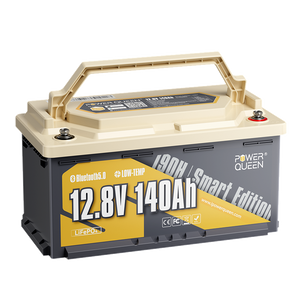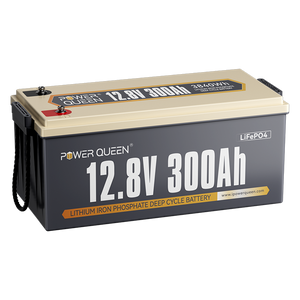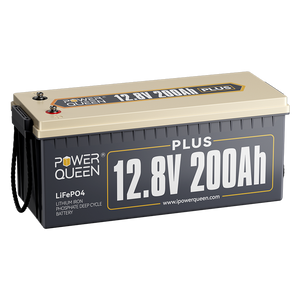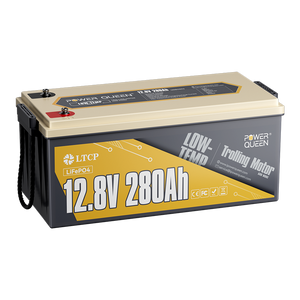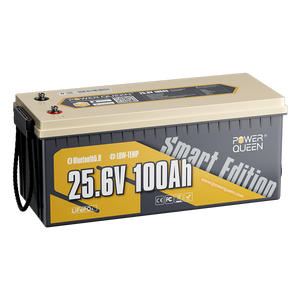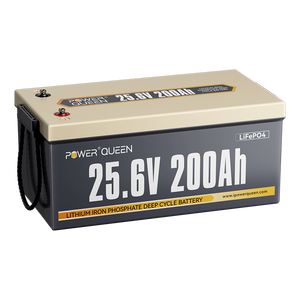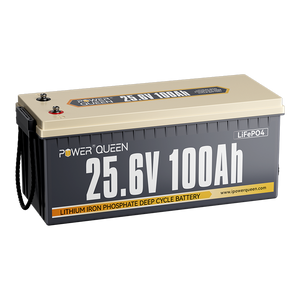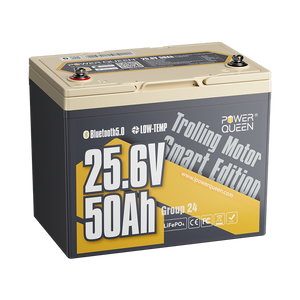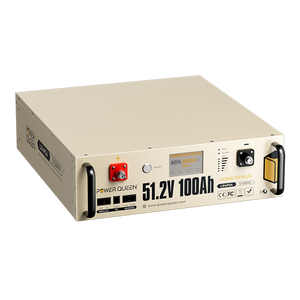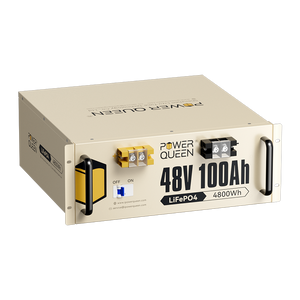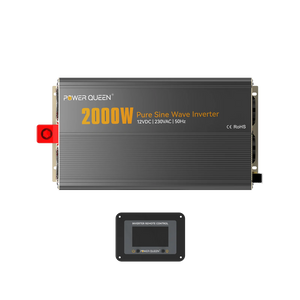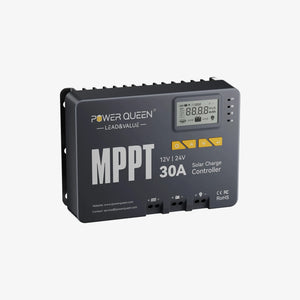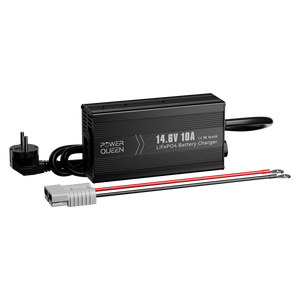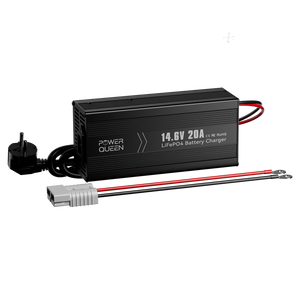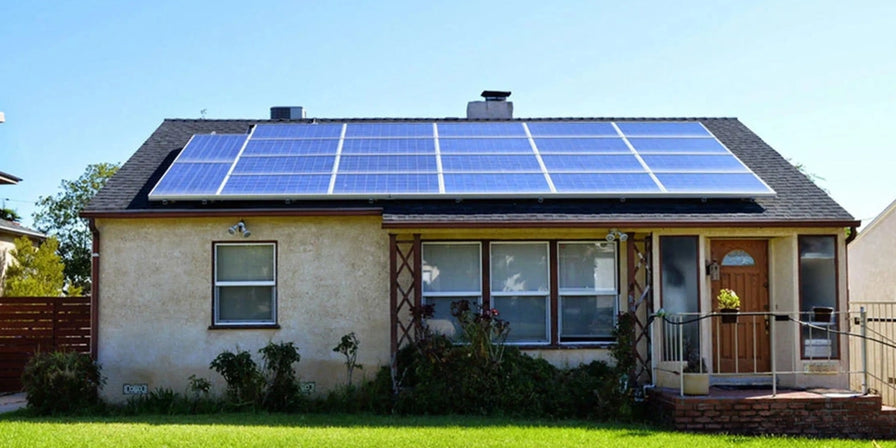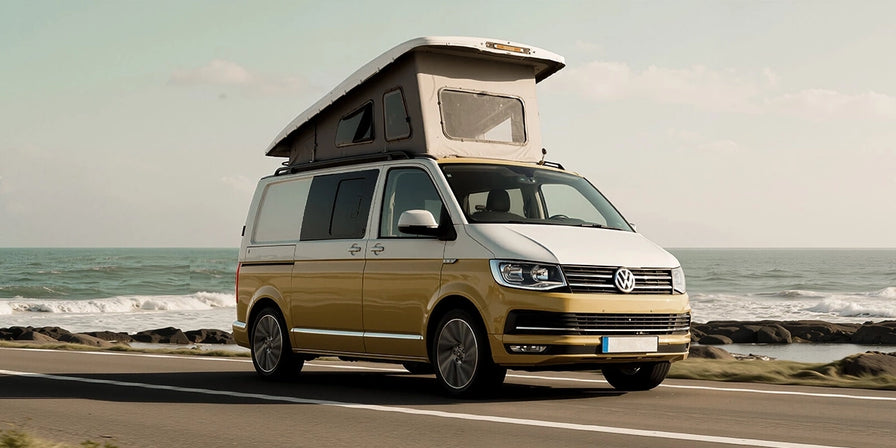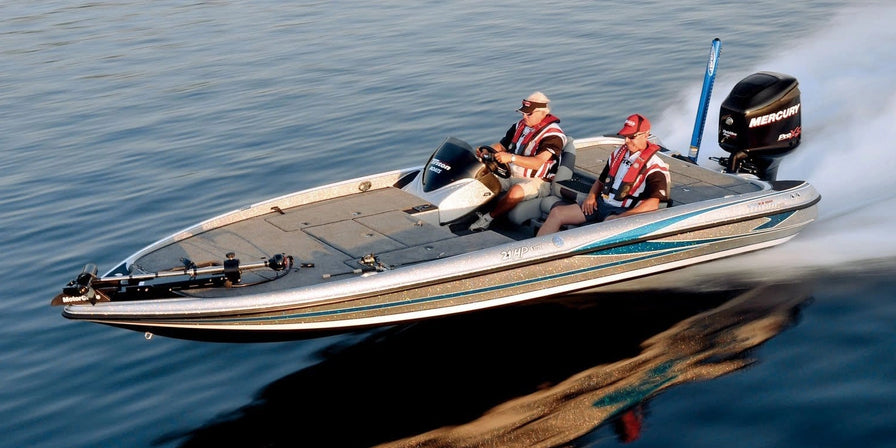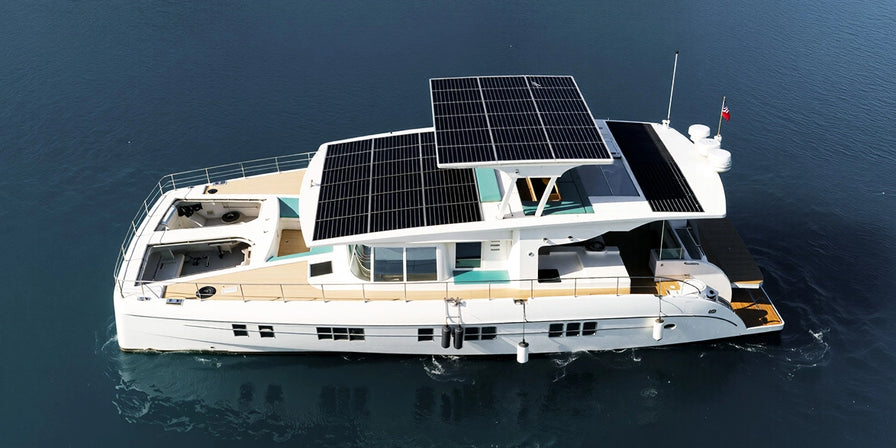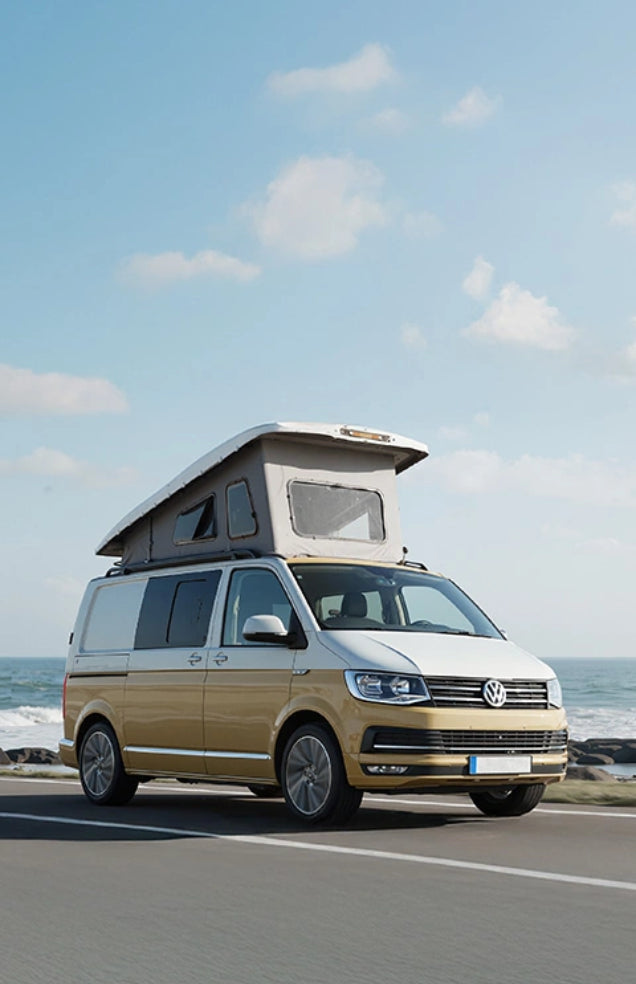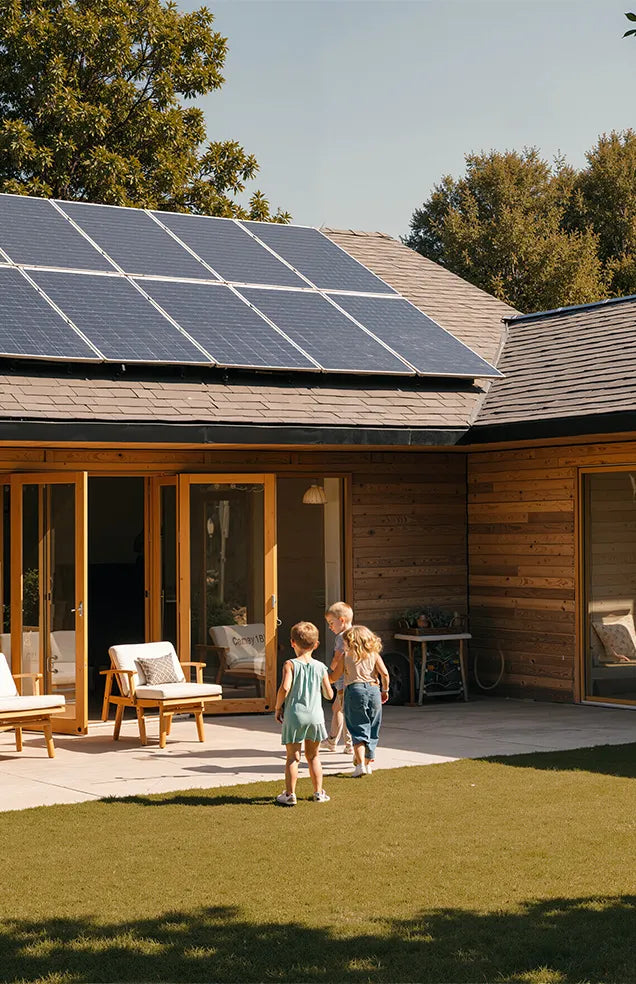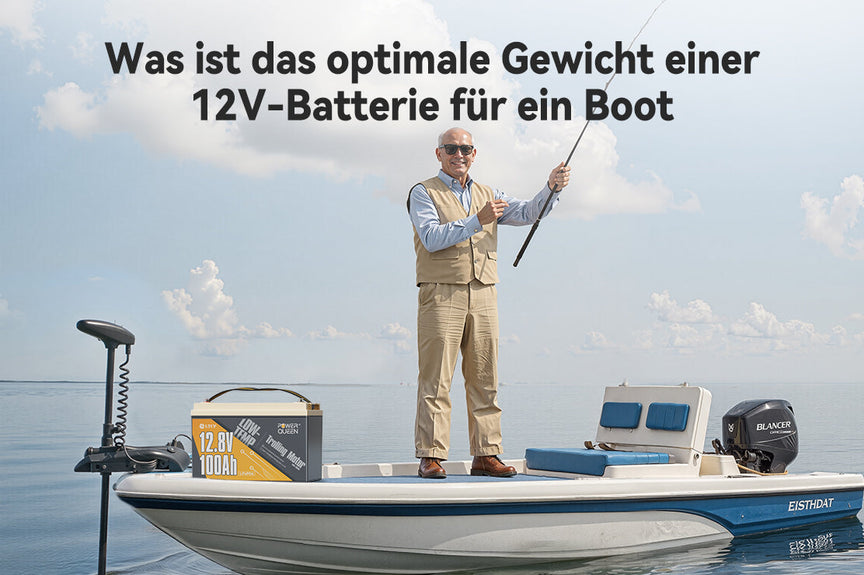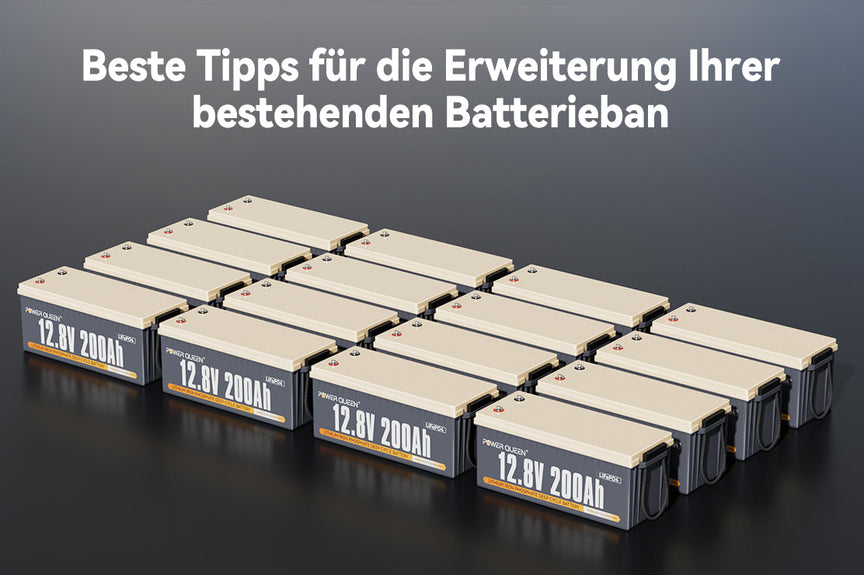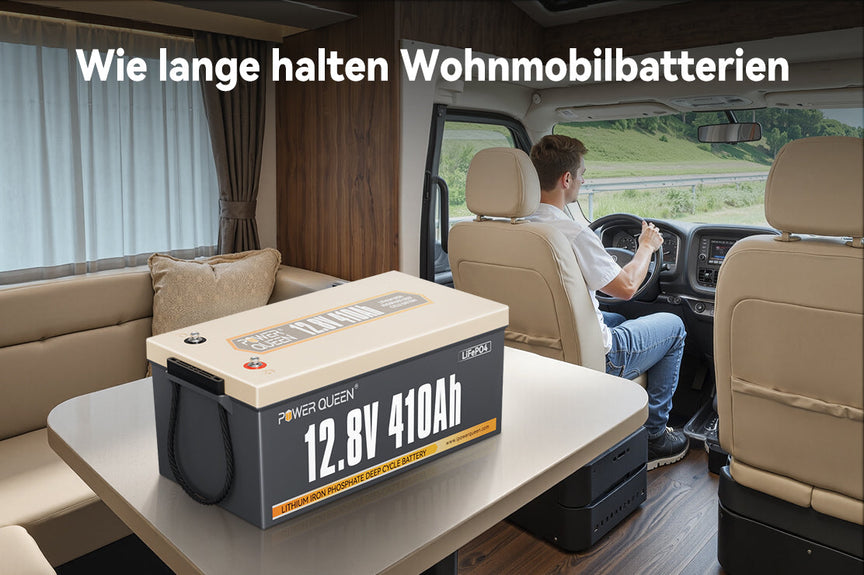Deep Cycle RV Battery: A Complete Guide
Deep-cycle batteries are specifically designed to provide a reliable and continuous power supply over extended periods. They are a fundamental component in a wide range of applications, including marine, recreational vehicles, and renewable energy systems.
In this guide, we delve into the complexities of deep-cycle batteries by examining the technical fundamentals of deep-cycle batteries, their key advantages, and their growing popularity in marine and recreational applications for both hobbyists and professionals.
Table of contents
Part 1. What are deep-cycle batteries used for?
Part 2. Types of deep-cycle batteries
2.1 Flooded lead-acid batteries
2.3 Absorbed Glass Mat (AGM) Batteries
Part 3. Deep cycle vs. normal battery: What is the difference?
Part 4. 4 Best Deep Cycle Batteries for RVs
6.1 Require Deep cycle batteryA special charger?
6.2 How long do they last? low cycle-Motorhome batteries?
6.3 Is a deep-cycle battery better for a motorhome?
6.4 What harms a Deep cycle battery?
Part 1. What are deep-cycle batteries used for?
Deep-cycle batteries are specifically designed for applications that require a consistent amount of energy over an extended period. Unlike standard car batteries, which provide a large burst of energy to start engines, deep-cycle batteries are designed to deliver continuous power and can be repeatedly discharged and recharged. Here are some of the main applications of deep-cycle batteries:
- Motorhomes (RVs): Deep cycle batteries are ideal for powering electrical systems in motorhomes, including lighting, cooling, HVAC systems and other devices that require a constant power supply when the vehicle is not connected to external power sources.
- Marine applications:Deep-cycle batteries power trolling motors, sonar devices, GPS systems, radios, and other electronic equipment on boats. They are essential for marine applications because they withstand harsh conditions at sea and provide reliable power over extended periods.
- Solar power systems:Deep-cycle batteries are frequently used in residential and commercial solar power systems as storage for solar energy. They store the electricity generated by the solar panels during the day and make it usable at night or on cloudy days.
- Golf cart: These vehicles rely on deep-cycle batteries to provide the energy needed for movement on golf courses. Deep-cycle batteries are preferred because they can withstand the frequent charging and discharging cycles of stopping and starting.
- Electric vehicles (EVs):Some electric vehicles use deep-cycle batteries to store and deliver the energy required for propulsion.These batteries must be durable and able to withstand frequent charging and deep discharging cycles.
Part 2. Types of deep-cycle batteries
Deep-cycle batteries are designed for applications requiring continuous power delivery over extended periods. They are engineered to withstand repeated discharge and charge cycles without significant degradation. The following is an overview of the main types of deep-cycle batteries:
2.1 Flooded lead-acid batteries
This is the traditional deep-cycle battery, also known as a wet cell. They contain a liquid electrolyte that moves freely within the battery. Flooded lead-acid batteries require regular maintenance, including monitoring the electrolyte level and topping up with water. They are generally the most cost-effective type of deep-cycle battery and are widely used due to their longevity and cost-efficiency.
2.2 Gel lead-acid batteries
These batteries contain a gel electrolyte, which is a silicon dioxide-based gel that immobilizes the electrolyte. Gel batteries are maintenance-free and offer good resistance to vibration and shock. They are less prone to evaporation and leakage than flooded batteries and perform well across a wide temperature range. However, they are more sensitive to charging conditions and require specialized charging equipment to prevent damage.
2.3 Absorbed Glass Mat (AGM) Batteries
AGM batteries consist of a fiberglass mat that absorbs and seals the electrolyte, making them leak-proof and maintenance-free. They offer superior performance in terms of power density, lifespan, and vibration resistance. AGM batteries charge faster than gel and flood batteries and can handle higher charge and discharge rates, making them a popular choice for marine, RV, and solar applications.
2.4 Lithium-ion batteries
Although more commonly associated with portable electronics and electric vehicles, lithium-ion batteries are also available in formats suitable for deep-cycle applications. These batteries offer high energy density, longer lifespan, and faster charging than lead-acid batteries. They are also maintenance-free and have a significantly lower self-discharge rate. Lithium iron phosphate (LiFePO4) is a common type of lithium-ion battery used in deep-cycle applications due to its stability and safety characteristics.
Each type of deep-cycle battery has its strengths and is suitable for different applications depending on specific performance requirements, environmental conditions, and budget. Choosing the right type depends on factors such as required maintenance, lifespan, purchase price, and the specific energy needs of the application.
Part 3. Deep cycle vs. normal battery: What is the difference?
Deep-cycle batteries and standard (lead-acid) batteries are designed for different purposes in vehicles and devices. Here are the differences:
- Capacity and discharge:Deep cycle batteries can be repeatedly discharged up to 80% of their capacity, while normal batteries should not be discharged more than 20% to avoid damage.
- Construction and durability: Deep cycle batteries are designed for longevity and have thick plates that can withstand the wear and tear of frequent charging and discharging.Normal batteries have thinner plates that are suitable for short, high-energy bursts of current.
- Energy supply:Deep-cycle batteries deliver a lower, steady current over a longer period, while normal batteries quickly deliver high power to start engines but cannot maintain it for long without recharging.
- Use:Deep-cycle batteries are used in situations where continuous power is needed without recharging, such as in solar energy systems or marine applications. Standard batteries are best suited for everyday use in standard vehicles where the engine starts frequently.
In short, choose a deep-cycle battery for long-lasting power and a normal-cycle battery for short bursts of energy to start an engine. Each fulfills a specific task and ensures optimal performance in different situations.
Part 4. 4 Best Deep Cycle Batteries for RVs
4.1 Power Queen 12V battery
The Power Queen 12V 100Ah Group 24 Deep-Cycle Lithium Battery It is ideal for RVs, camping, solar systems and marine activities, fits easily into tight spaces and is compatible with most systems. It is an upgrade from traditional lead-acid batteries.
Advantages:
- Energy efficiency:Powered by four A-rated cells that offer high performance for various applications.
- Safety first: The 100A battery management system protects against overcharging, overheating and short circuits.
- Long lifespan:Over 4000 cycles at 100% DOD reduce energy costs and environmental impact.
- Flexible customization:Compatible with battery boxes of sizes 24, 27 and 31.
Extended warranty: 10-year lifespan and 5-year warranty, with 24/7 technical support.
- Cost-efficient:A cost-effective alternative to traditional power supplies, saving on energy costs.

Considerations: Not suitable for older models or high-performance tools such as electric jacks and 4WD lawnmowers.
4.2 Power Queen 24V Battery
Power Queen 24V lithium batteries They offer safe, reliable, and space-saving energy storage, making them perfect for off-grid living, RVs, or backup power. Their advanced features and flexible design make them a great choice for long-term energy needs.
Ideal for: Off-grid living, motorhomes and emergency power supply during power outages, as they offer a space-saving, high-capacity solution by combining smaller units into a single one.
Advantages:
- High capacity: Efficient energy storage for long-term use.
- Advanced security:Equipped with a Battery Management System (BMS) for safe and reliable operation.
- Customizable:Multiple configuration options for flexible setups.
- Warranty and support:A 5-year warranty and fast technical support ensure peace of mind.
- Models:Power Queen offers three models of 24V batteries: 24V 50Ah: 1280Wh capacity; 24V 100Ah: 2560Wh capacity; 24V 200Ah: 5120Wh capacity

Part 5. Summary
Choosing the ideal deep-cycle battery for your RV, boat, or off-grid use is a crucial decision that impacts both performance and efficiency. If you're unsure which battery to choose, or have questions about installation and maintenance, our team is here to help. Get in touch via our contact page. We'll ensure you find the perfect battery for your adventures, guaranteeing reliability and sustainability wherever you are.
Part 6. FAQ
6.1 Require Deep cycle batteries A special charger?
Yes, deep-cycle batteries require a special charger, ideally a smart charger specifically designed for them. Deep-cycle batteries differ from regular batteries in that they are not designed for the high heat and rapid charging speeds of standard battery chargers. Using a suitable charger helps prevent damage and extend the battery's lifespan by ensuring it charges at a rate that protects its complex chemistry.
6.2 How long do they last? low cycle-Motorhome batteries?
The lifespan of a deep-cycle motorhome battery is typically up to six years, provided it is properly maintained and charged regularly and correctly. Longevity largely depends on how frequently the battery is used and whether it is subjected to damaging charging methods. Regular maintenance and careful charging are crucial to maximizing the battery's effective lifespan.
6.3 Is a deep-cycle battery better for a motorhome?
Yes, a deep-cycle battery is generally better suited for a motorhome. Unlike regular car batteries, which deliver short bursts of power, deep-cycle batteries are designed to provide a steady supply of energy over a longer period. This makes them ideal for motorhomes, as they can withstand repeated charge and discharge cycles and power appliances, lights, and other systems without being easily damaged. They are also more durable and reliable for long-term use in motorhomes, especially when camping off-grid.
6.4 What harms a Deep cycle battery?
Several factors can shorten the lifespan of a deep-cycle battery, with overcharging being one of the most common causes. Overcharging occurs when the battery remains plugged in for too long or is charged at a higher than recommended voltage, causing the electrolyte to overheat and damage the internal components.
Besides overcharging, deep discharge (complete discharge of the battery), undercharging (incomplete recharging of the battery), and extreme temperatures can also damage the battery over time. Proper maintenance, regular monitoring, and the use of the correct charger can help extend the lifespan of a deep-cycle battery.
